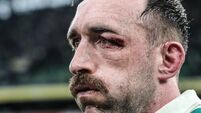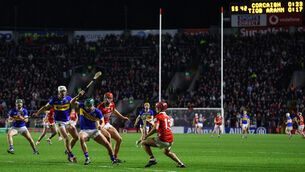It might be a pain but drug testing enhances the GAA

You could well be dehydrated as well as deflated, and so it might take you hours to supply the required sample.
Which means either the team bus is held up waiting for you, or else you’re stuck there with maybe just a team medic as well as the testers there with you for company.












